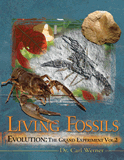
Teeth Track Early Agricultural Society
Teeth track patrimony (property inherited through the male line) and prosperity in early agricultural society.
News Source
A team from Cardiff, Bristol, and Oxford Universities has trekked across central Europe assessing the strontium isotopes in teeth. The teeth of 300 Neolithic skeletons, that is. The test subjects seem to have been farmers from the earliest days of European farming. These dental records give clues not to their deaths but to the lives of these men and women from long ago.
Minerals like strontium get concentrated in plants and the animals that consume them. The isotopes of strontium native to a particular location can thereby be permanently incorporated into the tooth enamel of people living there. By analyzing the strontium isotopes in the teeth, therefore, the team determined the likely locale of the food consumed by these people in life.
Men buried with adzes appear to have lived on food grown in areas of loess—the fertile and productive soil favoured by early farmers.
Those bodies buried with tools, such as adzes, are assumed to have been better off economically than those without. Correspondingly, those favored “men buried with adzes appear to have lived on food grown in areas of loess—the fertile and productive soil favoured by early farmers,” says Cardiff professor Alasdair Whittle. “This indicates they had consistent access to preferred farming areas.”
Loess is a loose fertile soil normally formed from windblown fine sediment. Much loess was produced with the glacial till left in the wake of the Ice Age. The term loess was first applied to the fertile soil of the Rhine Valley. The team speculates the economically prosperous farmers of early Europe had access to more fertile land than their neighbors.
Furthermore, the team found that strontium in the teeth of women indicated they were more likely to have been born in other places than the men, whose teeth often matched their locale. The researchers believe “this is a strong indication of patrilocality, a male-centred kinship system where females move to reside in the location of the males when they marry.” Dr. Penny Bickle explains, “Community diversity seems to have happened very early on in the transition to agriculture and probably occurred through inheritance and kinship systems rather than individuals competing for wealth.”
Anthropologists consider the earliest farmers in Europe to belong to the Neolithic, or “new stone age,” period. Stone tools of all sorts have been found with all “categories” of humans, including Neanderthals, Homo erectus, and these modern humans. An adze is useful for shaping wooden tools. Studies like this provide a window into the sort of society the people who replenished the earth after the Flood, the Tower of Babel, and the post-Flood Ice Age were creating. A society in which there was probable economic stratification and a family unit of some sort, likely dominated by the male, sounds pretty familiar. Furthermore, the fact that the apparently economically well off appear to have had access to the fertile land built by loess is a reminder that even the post-Flood Ice Age served as a blessing. Glaciers scraped and pulverized tons of sediment that became the fertile loess, ultimately blessing the lives of those striving to populate the post-Flood world.
Further Reading
For More Information: Get Answers
Remember, if you see a news story that might merit some attention, let us know about it! (Note: if the story originates from the Associated Press, FOX News, MSNBC, the New York Times, or another major national media outlet, we will most likely have already heard about it.) And thanks to all of our readers who have submitted great news tips to us. If you didn’t catch all the latest News to Know, why not take a look to see what you’ve missed?
(Please note that links will take you directly to the source. Answers in Genesis is not responsible for content on the websites to which we refer. For more information, please see our Privacy Policy.)
Recommended Resources

Answers in Genesis is an apologetics ministry, dedicated to helping Christians defend their faith and proclaim the good news of Jesus Christ.
- Customer Service 800.778.3390
- Available Monday–Friday | 9 AM–5 PM ET
- © 2026 Answers in Genesis




